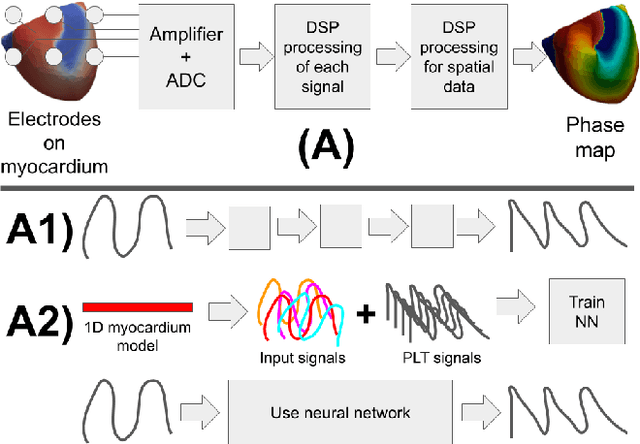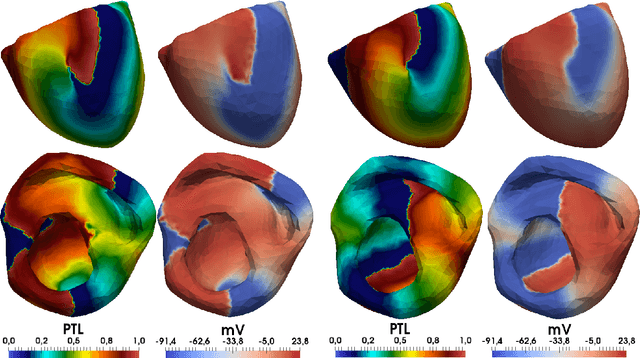Vladimir Sholokhov
Phase mapping for cardiac unipolar electrograms with neural network instead of phase transformation
Nov 21, 2019



Abstract:Digital signal processing can be performed in two major ways. The first is a pipeline of signal transformations, and the second is machine learning approaches that require tagged data for training. This paper studies the third way. We generate a training dataset for a neural network in a series of numerical experiments and uses the trained neural network for processing of new signals. The current work focuses on phase mapping, which is an approach of cardiac unipolar electrogram processing, that helps to analyze complex non-stationary behavior of cardiac arrhythmias. Idealized models of 1D myocardial electrophysiology provide a training dataset. Then, the convolution neural network is trained to provide phase-like transformation for the phase mapping. The proposed approaches were validated against data from the detailed personalized model of human torso electrophysiology. The current paper includes a visualization of the phase map based on our approach and shows the robustness of the proposed approaches in the analysis of the complex non-stationary periodic activity of the excitable cardiac tissue.
 Add to Chrome
Add to Chrome Add to Firefox
Add to Firefox Add to Edge
Add to Edge